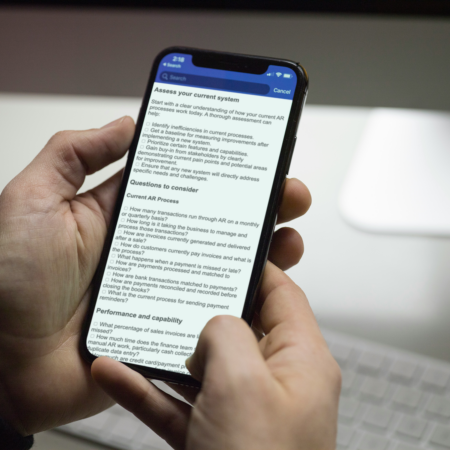
Even amidst a global pandemic, things are moving fast, and businesses are looking for easy solutions. This includes accounting. But what does easier accounting look like? Is it still effective? Let’s find out.

What Does Easier Accounting Look Like?
Financial management already has its challenges and requires special skills to balance the books while using financial data effectively. This is all much easier when you are using modern technology. Do you want to constantly enter, re-enter, validate, and update the numbers? Of course not! This makes it hard to track your financial data and can leave you with errors, delays, and frustration. This is a major reason why spreadsheet-based systems are less reliable for tracking financial data.
Easier accounting means less labor with more accuracy and insight. This also translates into fewer clicks and more visibility instead of having to hunt for the answers you need. This is all possible through several accounting software features.
Cloud Accounting is Easy Accounting
The days of desktop apps are fading. As many businesses resort to remote work, cloud-based technology ensures teams can collaborate effectively and in-real time. Cloud-based accounting tools are accessible anywhere, anytime as long as you have access to the internet. This means that account questions, bills, and payments can be dealt with instantly.
Sounds like choosing the new software will be easy, right? Well, there are many cloud-based accounting tools that all share this feature. So the choice itself can be tricky, unless you know what to look for. Being on the cloud doesn’t guarantee the quality or ease of your accounting. But, the underlying architecture and features of the solution itself will. Let’s look at a few of these critical features.
Features for Ease-of-Use and Efficiency
If manners make the man, then features make the accounting solution. Let’s look at some of these features.
System Flexibility
Software flexibility is a decisive factor in whether your software can fully support your business or hold you back. Every business is unique, so an untailored one-size-fits-all type of software is highly antiquated. Additionally, the true value from your accounting system lies with how it conforms and continually adapts to your individual needs and processes. This flexibility also contributes to how easy your financial life cycle will be to manage. The more you can control the way you do manage the numbers, the easier it will be.
Automation
One central feature that makes for faster, accurate, and easier accounting is automation. The availability and flexibility of your solution’s automation functions are not only a convenience but important for helping you manage increasing transaction amounts. Look for these three core automations in your prospective solution.
- Event Automation
Transactional accounting is now more streamlined and easier because systems can fully automate repetitive entries for you through event automation. For example, Accounting Seed utilizes click-not-code automation which enables you to do multiple functions with just a button click.
- Batch Automation
Batch automation, or batch processing, is automation in which the system completes batches of jobs at once instead of forcing you to do each job individually and manually.
- Scheduled Job Automation
Scheduled job automation ensures that your accounting never falls behind for you or your customers. Setting up recurring jobs creates consistency and helps you to meet deadlines.
Collaboration and Visibility Features
When a company is able to collaborate and visualize their financial data, it makes complete financial management a lot easier. In addition to strong reporting capabilities here are some additional features you should look for:
- User-Friendly Dashboards
Financial Dashboards provide a visual display of key metrics and trends of a company’s accounting. At a glance, you and your team can see your finances in real-time, an immense time-saver. This also makes it easier to see the financial data.
- Scheduled Reports
Scheduled reports let your team always be up-to-date on the number to make strong decisions – no wasted time gathering the financial data. You can set up what account info you need to analyze and have it automatically pulled.
- Workflow Rules
Workflow rules let you create and automate internal processes and procedural steps for key accounting processes. This makes managing the books consistent and easier to control.
- Approvals
This feature automates specific steps or sequences of events that require an official signoff on a record to ensure accuracy. All leaders and key personnel will be able to review and work on relevant processes without losing track of them. This also establishes accountability and a streamlined system of checks and balances.
To see even more features designed to optimize to enhance your accounting and make the experience easier, check out our 2020 Accounting Technology Buyers Guide.
You Deserve and Need Smooth Accounting
Having a more streamlined financial lifecycle isn’t just a convenience, your business needs it to succeed. The more time you waste entering numbers, the more mistakes are made in your bookkeeping because of ineffective technology. Own your future and look for a user-friendly accounting system that gives you total control of your finances.
At Accounting Seed, user experience is one of our guiding focus points and among our major strengths. Our award-winning technology gives you easier accounting without the strain of rigid software and meticulous processes.
See Accounting Seed in action
Get a close-up view of how accounting on Salesforce can eliminate the need for costly integrations—and silos of mismatched information—by sharing the same database as your CRM.


